Nurse hailed as hero after pulling three newborns out of a hospital hit by Beirut blast
From CNN's Amy Woodyatt, Ghazal Salah, Dareen Al Omari, Mehsen Mekhtfe and Caroline Faraj
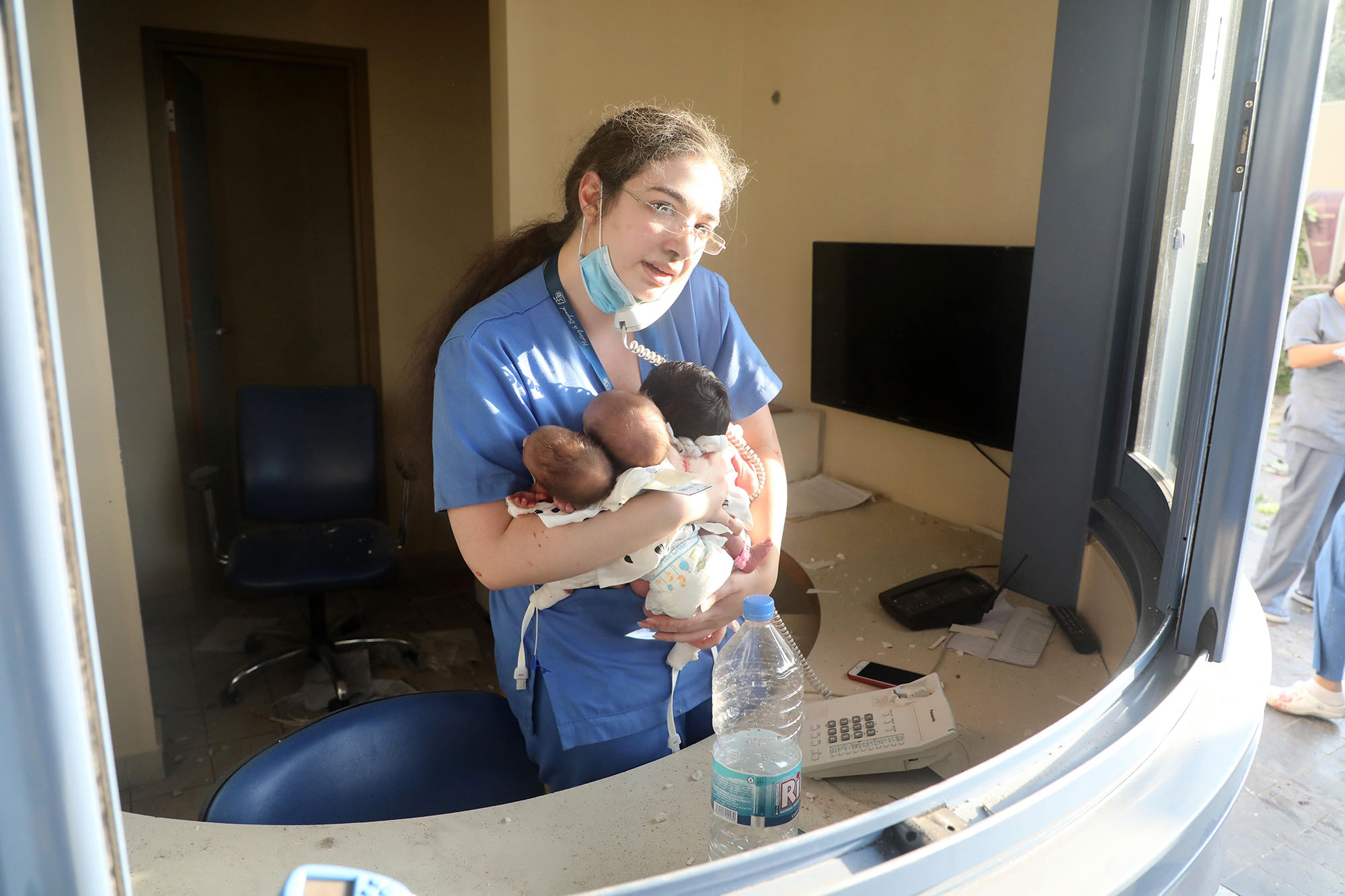 A nurse in Beirut takes care of three babies in a damaged hospital on August 4. Bilal Jawich/Xinhua/Getty Images
A nurse in Beirut takes care of three babies in a damaged hospital on August 4. Bilal Jawich/Xinhua/Getty ImagesA nurse pulled three babies out of a hospital rocked by the massive explosion in Beirut on Tuesday, a photographer who took her picture told CNN Arabic.
Photojournalist Bilal Jawich said he was at home on the outskirts of Beirut when the blast, which has left at least 100 dead and thousands injured, rocked the Lebanese capital.
"I followed the smoke until I reached the port of Beirut," he said, explaining that "professional intuition" took him to Al Roum hospital, in the Ashrafieh district. The area has been left devastated by the blast.
"However, the nurse looked like she possessed a hidden force that gave her self-control and the ability to save those children," Jawich said. "People stand out amidst these violent and dark and evil circumstances and this nurse was up to the task."
Jawich said the nurse told him later that evening that she was in the maternity ward when the blast hit. She said she had been knocked unconscious, and when she came around “found herself carrying these three children,” he told CNN Arabic.
Not everyone in the hospital was so lucky. George Saad, emergency preparedness and disaster manager for the hospital told CNN that some 12 patients, two visitors and four nurses died in yesterday's incident, while two remain in critical condition. Some 80% of the hospital had been damaged, along with 50% of its equipment, he said.
A drone captured the widespread destruction in Beirut
From CNN's Aditi Sangal
Drone footage captured by CNN this morning showed the destruction left in the wake of Tuesday’s deadly explosion in Beirut.
At least 100 people were killed in the blast, and the death toll could rise as many more people are reported missing. At least 4,000 people were injured in the explosion.
Watch the footage:
You might hear about ammonium nitrate today. Here's you need to know.
From CNN's Jessie Yeung
We're still not exactly sure what caused the deadly explosion in Beirut yesterday, but Lebanon's prime minister said an investigation would focus on an estimated 2,750 metric tons of the explosive ammonium nitrate stored at a warehouse.
So what is ammonium nitrate? Also known as AN, it's a compound of ammonia and nitrogen, is a highly volatile material used in agricultural fertilizers and bombs.
Disasters involving AN are rare, considering the US uses millions of tons of it every year in fertilizers, according to the Environmental Protection Agency. "Pure" solid AN is quite stable, but if the compound is mixed with any contaminants, even in small traces, the mixture becomes much more prone to detonation — which is why there are normally stringent government guidelines for how to treat and store it properly.
For instance, AN shouldn't be stored with any fuel, organic materials, chlorides or metals, said the guide — all potential contaminants. The EPA guidelines also recommend fire resistant walls in the storage unit, noncombustible flooring, and — crucially — controlled temperatures.
AN doesn't burn, but if exposed to heat, it can melt — which releases combustible toxic gases that can cause an explosion. It's even more dangerous if there is a large supply of AN all stored together, because once a small section of AN begins to melt and explode, the resulting heat can set off the rest of the supply.
Some history: One of the worst disasters in US history involving a form of ammonia occurred in April 1947 when a ship loaded with ammonium nitrate caught fire while docked in Texas City. The fire caused an explosion and additional fires that damaged more than 1,000 buildings and killed nearly 400 people, according to the website of the Texas Historical Association.
For perspective, that explosion was triggered by 2,300 US tons (about 2087 metric tons) of ammonium nitrate, according to US Homeland Security.
And the 1995 Oklahoma City Bombing, a US domestic terror attack that killed 169 people and injured 467, used only two US tons (1.8 metric tons) of ammonium nitrate.
Here's a satellite view of the scene, before and after the deadly blast
From CNN's Paul P. Murphy
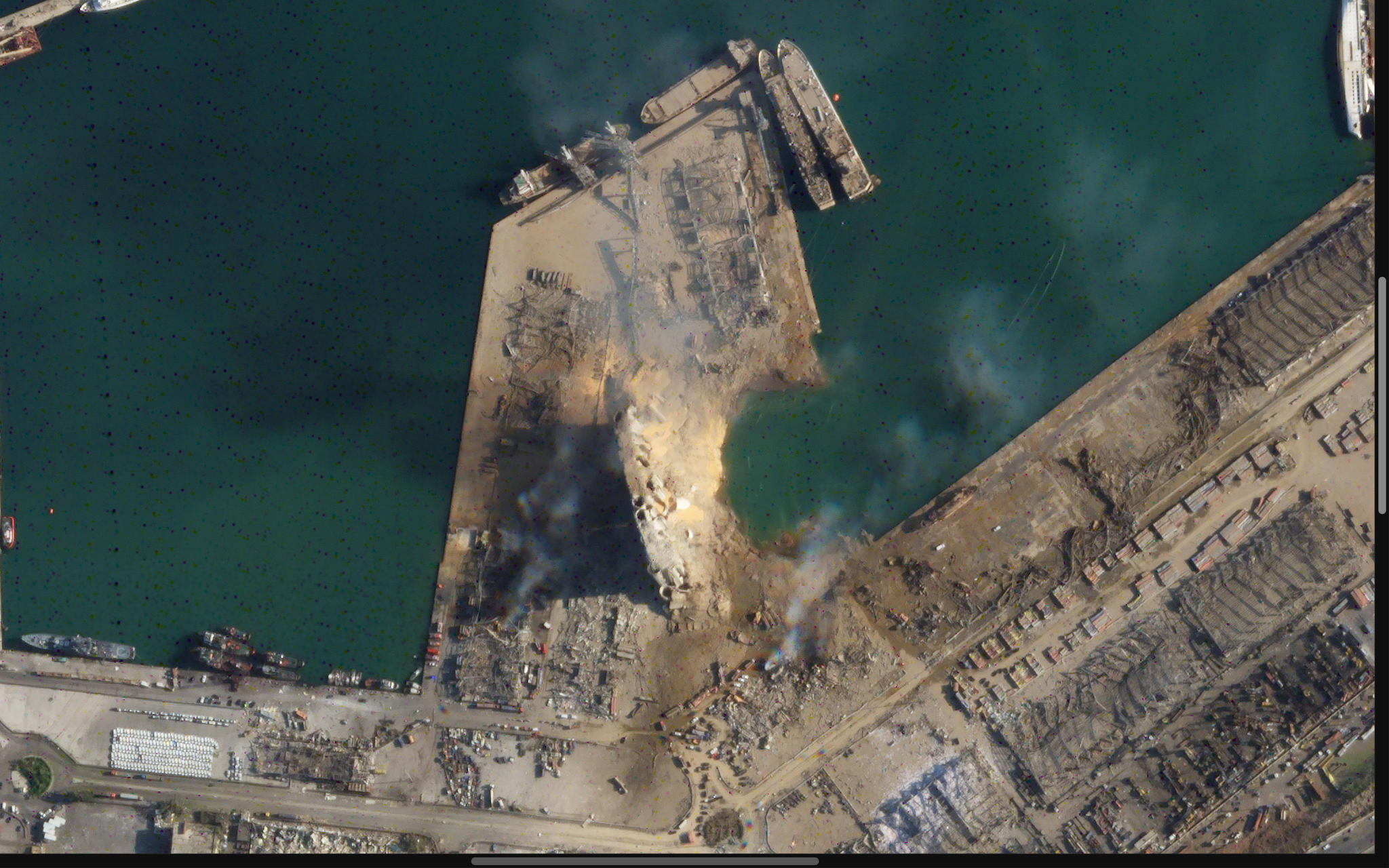 August 5. Planet Labs, Inc.
August 5. Planet Labs, Inc.This satellite image from Planet Labs, Inc, showed the destruction left in the wake of yesterday's deadly explosion in Beirut.
At least 100 people were killed in the blast, and the death toll could rise as many more people are reported missing. At least 4,000 people were injured in the explosion.
For comparison, here's what the port area looked like before the blast:
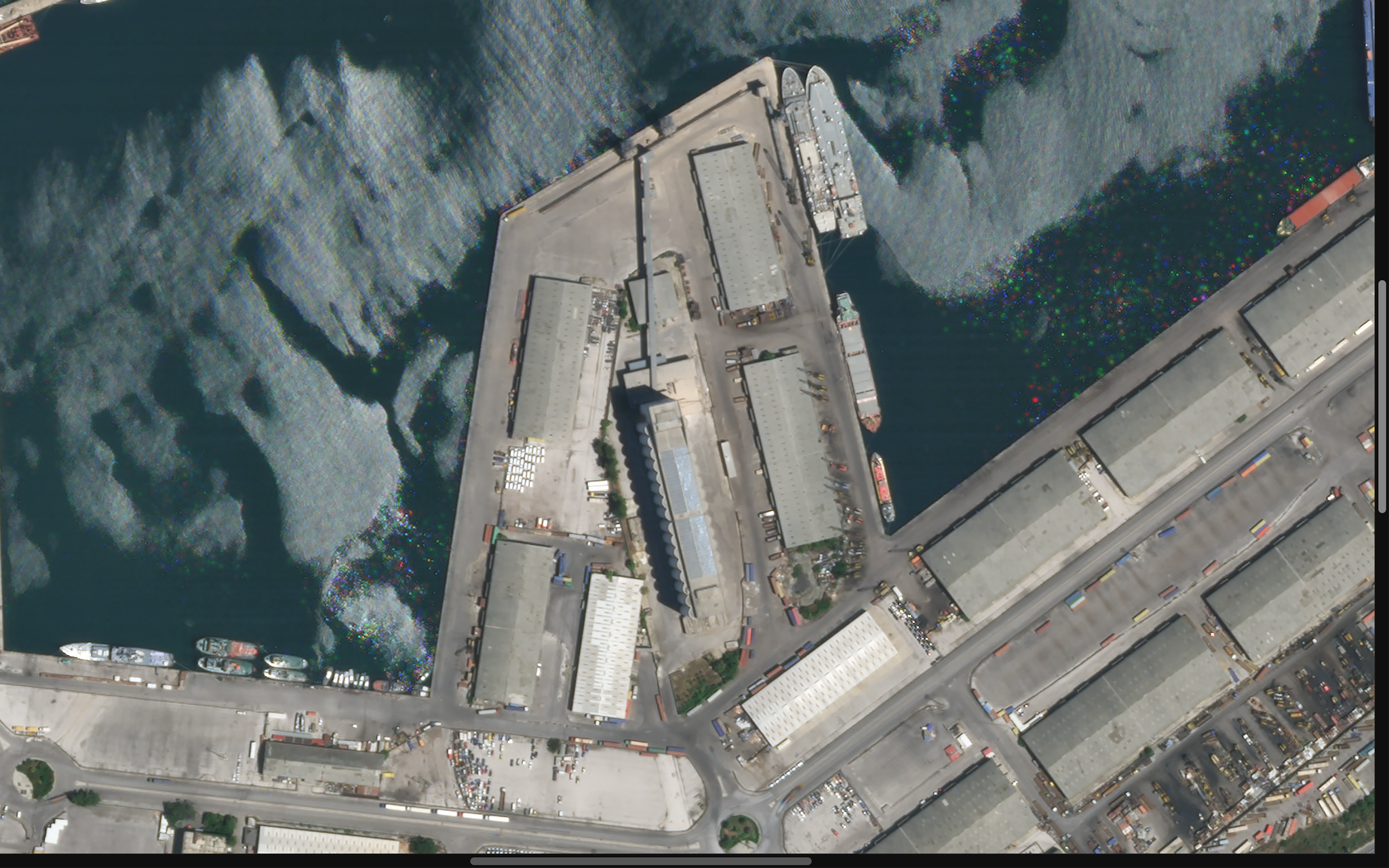 May 31. Planet Labs, Inc.
May 31. Planet Labs, Inc.Beirut port officials to be placed under house arrest, minister says
From CNN’s Mostafa Salem
The Lebanese cabinet has ordered that “officials” involved in the Beirut port explosion be placed under house arrest “in the coming days,” the Lebanese Minister of Displaced People Ghada Shreim said without providing further details.
Every business in Beirut is impacted by the blast, economic official says
From CNN's Schams Elwazer
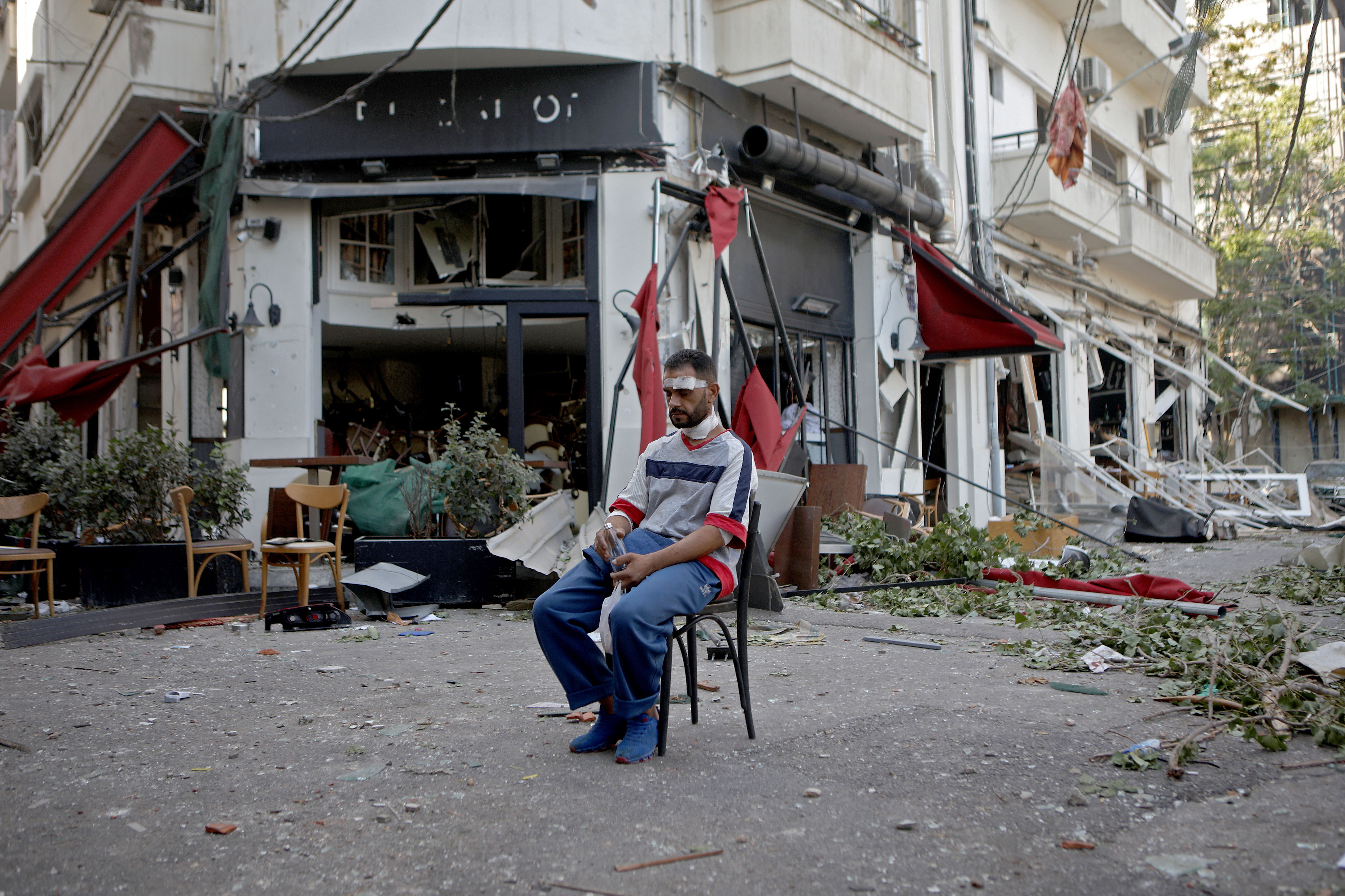 An injured person sits by a restaurant on August 5. Patrick Baz/AFP/Getty Images
An injured person sits by a restaurant on August 5. Patrick Baz/AFP/Getty ImagesEvery single business in Beirut has been affected by yesterday's deadly blast, Lebanon's Economy Minister Raoul Nehme said.
“There is not one apartment in Beirut that wasn’t impacted, not one businesses that wasn’t impacted – whether the storefront of the goods” he said.
”The impact on the economy is massive and the port has been practically erased,” Nehme told CNBC Arabia in an interview Wednesday, adding it was too soon to fully gauge the scale of the damage on the economy.
“No one can know the numbers right now. One billion [dollars], two billion, three, five, ten – we can’t know. It’s too soon. But it’s very high and more than our capacity,” he added.
He said the government’s priority was to secure people’s basic necessities – mainly food but also supplies to help repair the extensive damage to homes and infrastructure across the city.
Turkey sends rescue and health care teams to Beirut
From CNN's Gul Tuysuz
Turkey is sending search and rescue teams, health care workers, medical supplies and other urgent humanitarian aid to help in the aftermath of the blast in Beirut, according to the Turkish foreign ministry.
Turkey is also planning on setting up a field hospital, the ministry said in a written statement.
Qatar sends medical supplies to Lebanon for explosion victims
From CNN's Jomana Karadsheh
Qatar sent a plane filled with medical supplies to Lebanon to help victims of the Beirut explosion, according to a tweet from the Qatari government.
The first plane arrived today, and the government will send three more carrying equipment for hospitals.
Lebanon’s health sector is suffering from two crises, Covid-19 and explosion aftermath, health minister says
From CNN’s Mohammed Tawfeeq
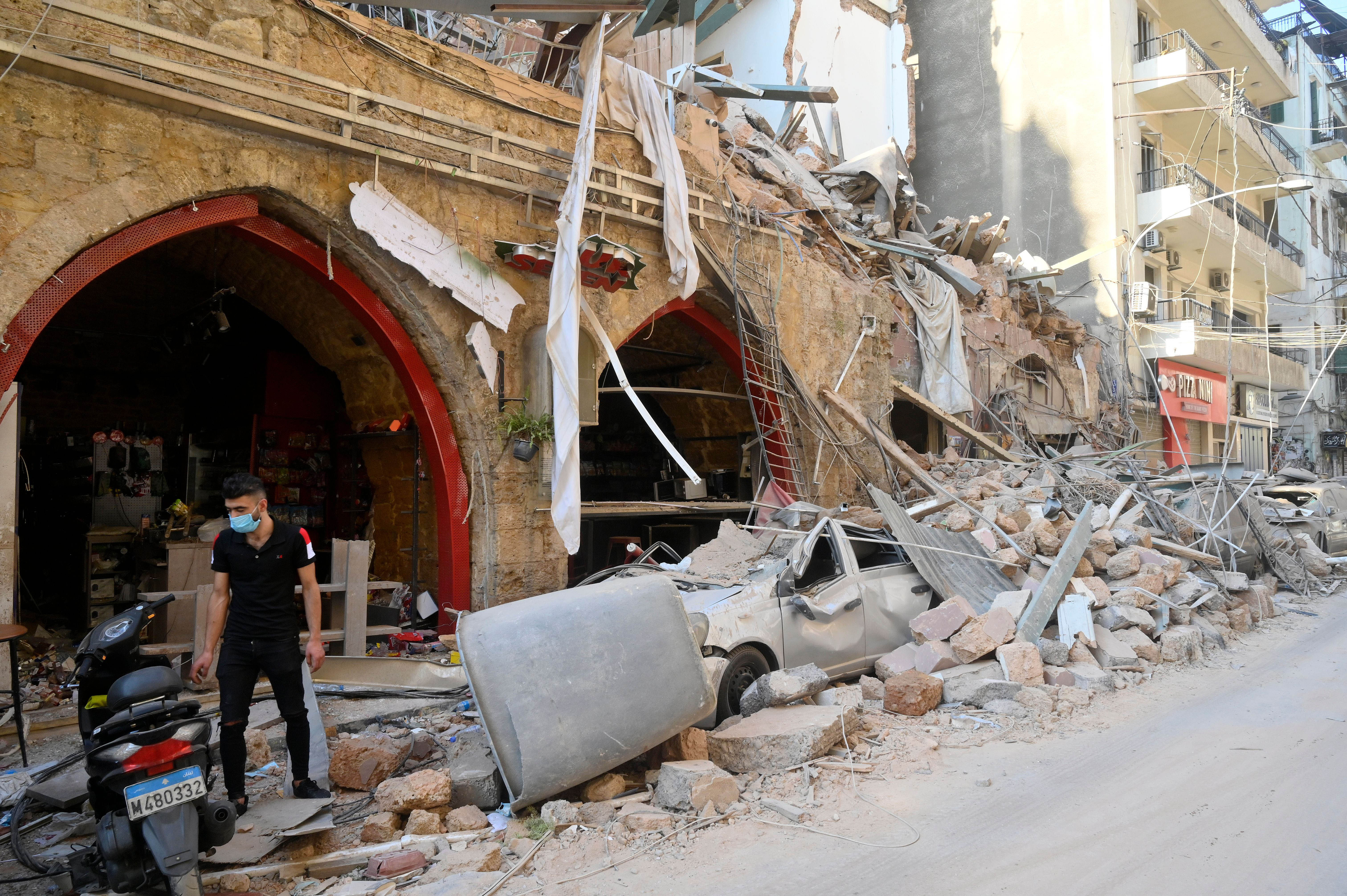 A person stands by damaged buildings and vehicles on August 5. Wael Hamzeh/EPA-EFE/Shutterstock
A person stands by damaged buildings and vehicles on August 5. Wael Hamzeh/EPA-EFE/ShutterstockLebanon's Health Minister Hamad Hassan said Tuesday’s explosion that killed at least 100 people and wounded 4,000 added to the country's health care system crisis as it has been already struggling with the Covid-19 pandemic.
"It requires everyone to engage positively from politicians, political parties, authorities, and from all friendly and brotherly countries because we suffer from a shortage in the number of beds and a lack of equipment to help injured people and those are in critical conditions," Hassan added.

 5 years ago
503
5 years ago
503 

